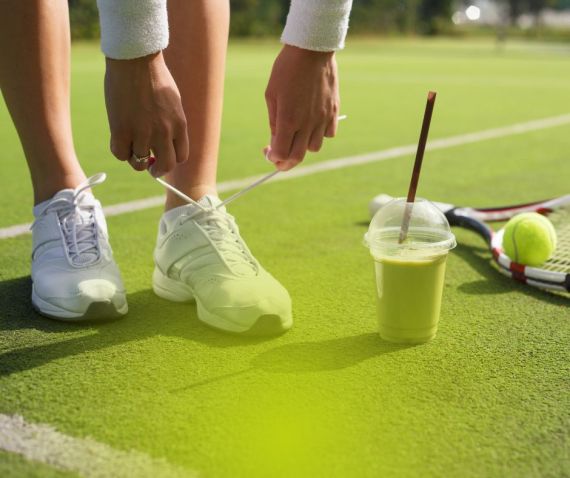The Ultimate Guide to Choosing the Right Tennis Shoes for Your Game
Step up Your Tennis Game with the Perfect Shoes: A Comprehensive Guide
There is a wide variety of tennis shoes to cater to everyone's personal preference and different court surfaces. Knowing which type of shoe is the one for you makes an easier buying decision and can also help you perform at your best.
Each court surface has different playing characteristics, which will dictate the ideal shoe to play in. One of the most significant factors when choosing a pair of tennis shoes is the sole of the shoe.
Alongside a racquet and ball, tennis shoes are essential to your kit. Not only do tennis shoes equip you with the right outsole, but they also provide you with the stability, durability and comfort required to play the game competitively without putting yourself at risk of injuries.
Whereas other shoes, for example, running shoes, would not be suitable for tennis as they are made to focus on forward movement. Tennis shoes are made to support a player's foot movements with extra heel comfort and ankle support.
All court: These are the most versatile of shoes and by far the most popular choice. As the name suggests, they are suitable for all tennis surfaces as the pattern of these shoes give a good grip. So if you aren't going to be playing on one specific surface type, these multi-purpose shoes may be your best bet.
Grass court: Grass courts are slippery, which also makes them the fastest of the different court surfaces as the ball bounces low. Grass-court tennis shoes are designed to prevent damage to the court. The design of grass court shoes is with a flat outsole with pimples or subtle bumps throughout the entire length of the outsole for optimal traction.
Clay court: Playing on clay courts, players tend to slide on the court. Due to the clay being a loose surface, it regularly gets stuck within the tread of a tennis shoe's outsole, which can cause a player to lose traction. Therefore, it is best to look for a shoe that offers stability for confident slides, even more so for lateral or side-to-side movements. Clay-court tennis shoes are typically composed of synthetic uppers, a herringbone tread pattern that won't clog with clay. They also are more lightweight, which allows for speed and improved manoeuvrability.
Hard court: For this type of court, shoes are made to stand up to the harsh demands of the surface. You would be looking for a shoe with added comfort and extra protection around the shoe's upper.
Choosing a pair of tennis shoes should also demand on your style and level of play. An inexpensive pair of all-court tennis shoes will be the best option if you are relatively new to the sport or a complete beginner. Once you are more advanced, you can invest in a more expensive and specific type of shoe to meet your game's higher level of demand.
Here are some features to remember to help you evaluate your shoes and ensure they are the right ones for you!
- Comfort- Naturally, tennis shoes tend to be stiffer than most other sports shoes, but this is due to a wide range of motions. However, they also offer great comfort. It is a good idea to replace the insole regularly to ensure your shoes remain comfortable.
- Stability- The width of the sole of the shoe can provide a platform of balance and stability. Most shoes are made with a plastic insert in the middle of the sole to prevent the shoe from twisting whilst playing. The shoe's upper is also important to support and stabilise the ankle.
- Durability- One of the most critical parts of the shoe for durability is the outsole at the bottom of the shoe. This is because it is the part of the shoe in constant contact with the surface of the court. This also goes for the toe of the shoe, which also frequently comes in contact with the court surface. With this being said, every player is different and may find their shoes will wear quicker in different areas than others, depending on their playing style and choice of court.
- Weight- A lighter-weight shoe feels faster, while heavier shoes seem to feel slower. The way to make a shoe feel lighter is to remove some of the features, but unfortunately, this risks affecting stability and durability.
In conclusion, choosing the right tennis shoes is vital for a player's performance. Different court surfaces require different shoes, and a player's level of play and style should also be considered. Features like comfort, stability, durability, and weight are critical aspects to consider when buying tennis shoes. It is essential to replace the insole regularly for maximum comfort and to evaluate the shoe's wear and tear in different areas depending on your playing style and choice of court. Investing in the right tennis shoes is a must to play the game competitively.



